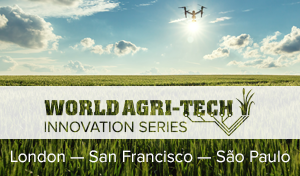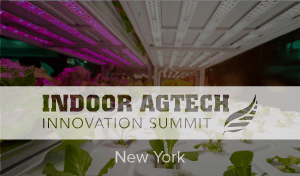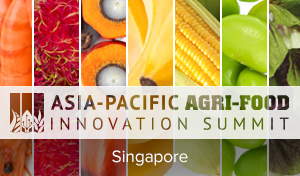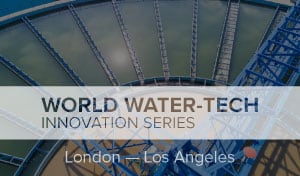Ensuring Environmental, Food and Economic Security
Aquaculture investment experts, Markus Müller, Managing Director & Chief Investment Officer, Deutsche Bank, and Larsen Mettler, Managing Director: Oceans & Seafood, S2G Ventures, discuss how the blue food industry can fortify natural resources and provide socio-economic security to strengthen communities.
They will both be speaking at the Blue Food Innovation Summit in London this May, 23-24. Book here to join them.
How do consumers and policymakers view the aquaculture industry and what implications does this have on the sector’s overall growth?

Markus Müller: As we know, 90% of the world’s marine fish stocks are now fully exploited, over-exploited or depleted. On the other hand, 3 billion people in the world depend on wild-caught and farmed seafood as a primary source of protein. This shows clearly the inter-linkage between healthy natural resources and socio-economic security when it comes to blue food. Moreover, from employment perspective, the FAO estimates that around 60 million people are employed worldwide in fishing (39 million) and fish farming (20.5 million). Most are in developing countries, and are small-scale, artisanal fishers and fish farmers.
Solutions to extreme and depleting wild catch fishing, either via increased regulations, new technologies (like RAS or alternative feed sources) and/or new sustainable practices, must ensure the capacity of our natural resources to replenish themselves while at the same time feeding a growing population, especially in developing countries. Fishing, and in particular wild catch fishing, has a severe direct impact on the ocean and its biodiversity, making it an activity of systemic importance for the environment. Indeed, ocean resources have been brought to the brink from anthropogenic impacts. Fish populations managed beyond biologically sustainable levels increased from 10% in 1974 to 34.2 percent in 2017, while around 60% of fish stocks were fished at maximally sustainable levels (completely exploited) in the same year (FAO 2020).
Larsen Mettler: Overfishing is a real and serious threat to our ecosystems and a critical food source for much of the world’s population – presently 40% of the world’s population lives within 100 kilometers of the coast. Aquaculture is a viable solution to feeding a growing world population facing resource scarcity, however and unfortunately, practices by many industrial aquaculture farmers have historically been far from sustainable.

Intensive farming and poor environmental stewardship by some producers has unfortunately given all aquaculture a reputation as a harmful practice among many consumers and policymakers. The reality is that while these producers do exist and should be condemned, there are an increasing number of onshore and offshore aquaculture farmers operating sustainably with environmental stewardship and animal wellbeing at the centre of their operation. Driving these practices are leading edge technologies which have proven their commercial viability. For example, ReelData, a S2G portfolio company, is enabling land-based recirculating aquaculture systems to feed fish only when they are hungry and measure fish stress levels to both create minimal waste and optimal growing conditions. Another portfolio company, ViAqua therapeutics, has developed an mRNA solution to White Spot Syndrome – which devastates farmed shrimp populations in developing economies – that integrates directly into feed so it is easy for farmers to use with no impact on the aquatic ecosystem.
In the current climate of economic and climate instability, how is the blue food industry strengthening natural resources and providing socio-economic security to strengthen communities?
Larsen Mettler: It is our perspective that sustainable aquaculture is being driven by producers and consumers, although more consumer and policymaker education on the distinction between best and worst practices and producers is always welcome and will help catalyze aquaculture growth.
Markus Müller: Managing seafood sustainably will thus ensure environmental sustainability, food security, but also bring huge economic benefits. Furthermore, vital fish habitats are under threat from pollution, coastal development, and harmful fishing methods, all of which impair fish population recovery. According to the World Bank, if fisheries were managed sustainably, stocks might rise by 13% and be worth an extra USD85 billion each year. Based on the World Bank’s Sunken Billions report, overfishing and overcapacity cost the economy more than US$80 billion in missed economic gains each year.
Hence, the fishing sector is important for food security, GDP contribution and finally the systemic value for nature based on their impact and dependency on it. Yet, we should avoid the mistakes of the past and move to a polycentric approach of governance for ocean resources. Central institutions and global financial markets cannot do without local communities and their economic inclusion and resilience should be on top of our priorities.
Markus and Larsen will join panels with Robert Jones (THE NATURE CONSERVANCY), Amy Novogratz (AQUA-SPARK) and Brian Tsuyoshi Takeda (URCHINOMICS) at the Blue Food Innovation Summit on May 23-24. View the full agenda.

 CLOSE
CLOSE






